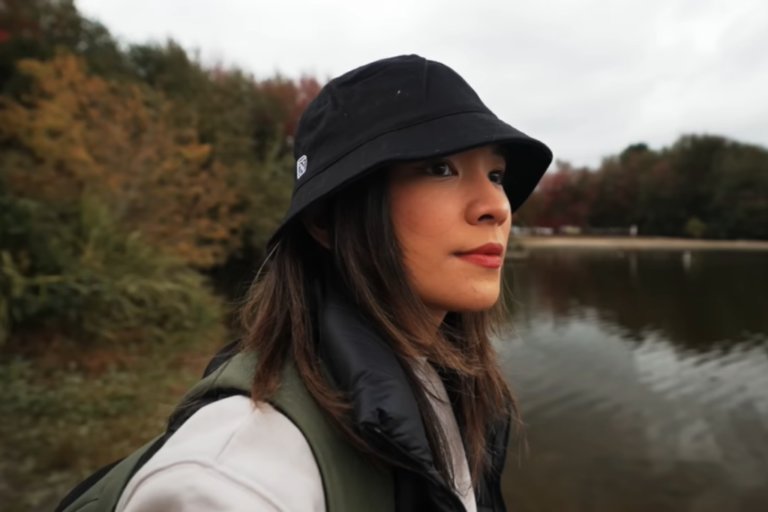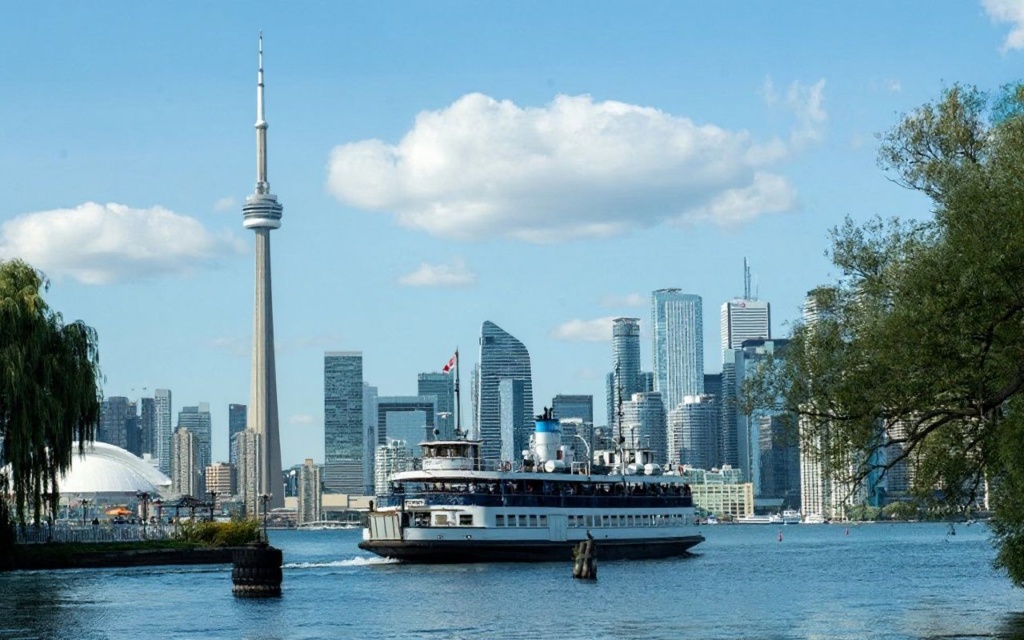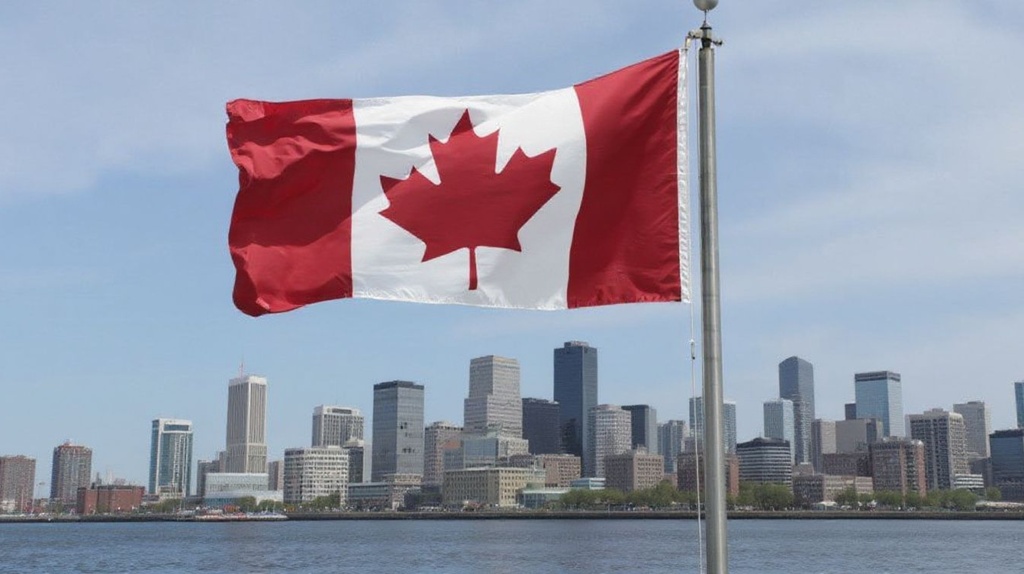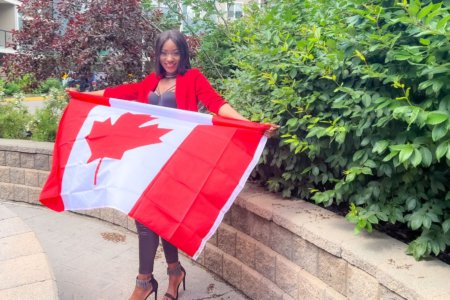
The process to become a Canadian PR can be overwhelming, confusing, and even frustrating — especially if you are an international student who has just landed in a new country.
That’s because, unlike in other countries, choosing the right programme can go a long way in determining your chances of securing a post graduate work permit (PGWP) or permanent residency in Canada.
There are two popular ways to become a Canadian PR:
- The Provincial Nominee Programme: A province nominates a foreign national to become a Canadian PR.
- Express Entry: This online system manages applications from skilled workers looking to settle in Canada as permanent residents.
The vast majority of international students become Canadian PRs after getting a degree in Canada and working there after graduating.
Only 9% of international students who became Canadian PRs achieved their permanent residency after studying at one level in Canada with no subsequent work, one study in January found.
Only 3% became Canadian PRs after two or more levels of study and no subsequent work permits.
Another study in July showed that most international students who come to Canada want to remain and eventually become permanent residents — but less than a third actually achieve this goal.
Hailing from the Philippines, Rachel Dancel has dedicated most of her time and experience as an international student to help others like her become a Canadian PR.
But she almost narrowly missed the opportunity herself.
From industrial engineer in the Philippines to graphic designer and Canadian PR
Dancel pursued a Bachelor of Science in Industrial Engineering for five years at the University of Asia and the Pacific, where she was a merit scholar.
However, the Philipines native was more excited to explore and nurture her passion for visual storytelling.
“The analytical skills I gained in engineering have been invaluable, but graphic design allows me to express creativity and connect with others on a visual level,” she tells Study International.
In 2017, the industrial engineering graduate flew to Vancouver and began a new phase in her life as she pursued a one-year certificate programme in Communication Design Essentials at the British Columbia Institute of Technology.
At this time, Dancel started her YouTube channel based on her experience as an international student.
“My YouTube channel emerged from a challenging time in my immigration journey to offer a genuine perspective. It was a way to support others in navigating their paths to Canada,” she shares.
Most of her early content answered questions on where to rent, how to apply for a study permit, and also answering the popular question of how to apply to become a Canadian PR.
“The first challenge was finding work without Canadian experience. I adapted my skill set to local market needs and persistently applied to various job opportunities until I found roles that recognised the value of my foreign expertise,” she explains.
“Managing finances on a part-time job salary while studying full-time was equally challenging. Still, through meticulous planning, budgeting and prioritising essentials, I learned to live within my means and make the most of the resources available to me.”

Dancel sharing the challenges she had to go through while applying to become a Canadian PR. Source: Rachel Dancel/YouTube
Braving through the challenges of applying for permanent residency with a one-year programme
When she was not studying, Dancel worked part-time as a sales associate in retail stores. International students can work for 20 hours per week during term.
Upon completing her certificate in October 2018, the British Columbia Institute of Technology graduate applied for a PGWP.
In the meantime, she was lucky enough to secure a full-time job as a Programme Assistant for the Immigrant Services Society of BC.
“I was very fortunate enough that the first job I landed right after graduation also happened to be a skilled job. It was a NOC Level B, a technically skilled job,” she shares in a YouTube video.
“Working a skilled job is very important as this is one of the requirements that you need to qualify for the Express Entry programme.”
 Express Entry is an online system that manages applications from skilled workers looking to settle in Canada as permanent residents. Her PGWP was approved in January 2019 — but there was a catch. Since Dancel studied for one year, she was issued a one-year PGWP. An applicant can only receive one PGWP in their lifetime without extensions.
Express Entry is an online system that manages applications from skilled workers looking to settle in Canada as permanent residents. Her PGWP was approved in January 2019 — but there was a catch. Since Dancel studied for one year, she was issued a one-year PGWP. An applicant can only receive one PGWP in their lifetime without extensions.
Later that year, in October, the Philippine native met the minimum requirement for Express Entry.
“At this point, I had a valid IELTS exam and one year of skilled work experience in Canada,” she says.
“I found out my CRS score was 450 points. I qualified under the Canadian Experience Class and Federal Skilled Worker Programme when I submitted my Express Entry profile.”
The Comprehensive Ranking System (CRS) is a merit-based points system that assigns a score to each candidate in the Express Entry pool.
With three months left before her PGWP expired, Dancel only had that period to be invited by Immigration, Refugees and Citizenship Canada to apply for permanent residency.
Worse, the CRS cut-off score at that point for Express Entry was 475 points — she was 25 points short.
Dancel tried everything to make the cut.
It was too late for her to take up French as a second language. Her CRS score did not change even after retaking her IELTS exam. Her previous workplaces would shut down due to “organisational challenges.”
“I even applied to other jobs, but my status was always a point of concern at every interview,” she says.
Dancel recalls how lost she felt at this point in her life.
 Luckily for Dancel, she received an invitation to apply for permanent residency a month before her visitor status expired.
Luckily for Dancel, she received an invitation to apply for permanent residency a month before her visitor status expired.
Finally becoming a Canadian PR: The start of a new chapter
Dancel’s PGWP expired in January 2020 and she had to stay in Canada as a tourist until she received an invitation to apply for permanent residency. Most visitors can stay in the country for up to six months.
“I was buying time to stay in Canada, but I had no clue where it would lead to,” she shares.
“As a visitor, you are not allowed to study or work while in Canada. If nothing happens during my stay in Canada as a visitor, I am boarding my plane to go back home.”
During this period, Dancel felt restless. As a student, she was preoccupied with studying. As a worker, she followed a nine-to-five routine. As a visitor, there was nothing she could look forward to.
Plus, she had to live off her savings, which, according to Dancel, “was not a lot.” On top of this, the world stopped due to COVID-19, hampering her ability to explore and enjoy the outdoors.
Luckily, Dancel received an invitation to apply for permanent residency on May 14, 2020. The cutoff for CRS scores dropped to 447 — her CRS score was 450.
“It was a saved by the bell kind of feeling,” she says. It was as if I was given another shot at life.”
Fuelled by a passion for helping others going through the same, Dancel revived her YouTube channel to provide high-quality content for international students. She used case studies and gave talks discussing immigration pitfalls.
“Becoming a content creator had a significant positive impact. Initially, I hesitated to share my experiences, feeling isolated in my own challenges. However, opening up about my journey made me connect with many who resonated with my story. The shared understanding and mutual support diminished my anxiety and fostered a stronger sense of community,” she enthuses.
Asked whether securing permanent residency in Canada was part of her plans as an international student, she responded: “Securing permanent residency in Canada wasn’t my initial goal; I wanted to experience student life before making a significant commitment.”
She adds: “With my family and friends in the Philippines and everything familiar to me there, I was uncertain if Canada could feel like home. Nevertheless, I was aware of the benefits of becoming a Canadian PR, so I cautiously took steps that would keep the pathway to permanent residency open should I decide to pursue it.”

Canxvisa was born from the insights gained through Dancel’s YouTube channel, where she connected with the everyday concerns of international students, particularly regarding the study permit and programme selection process. Source: Canxvisa
Debunking the Canadian immigration system with Canxvisa
With the insights gained from her YouTube channel, Dancel teamed up with her partner, a former immigration lawyer, to tailor her focus on Canxvisa.
This platform helps international students navigate the complex terrain of selecting programmes aligned with their educational and immigration goals.
“Building the small Canxvisa team of two has been a journey rooted in partnership and complementary skill sets,” she shares.
“My partner, Tien, brings seven years of expertise as a Canadian immigration lawyer. At the same time, I contribute a hands-on, self-taught approach, having navigated my path from student to permanent resident status in Canada.”
The synergy lies in blending Tien’s technical knowledge with her practical experience to offer in-depth guidance to international students.
Beyond this, Canxvisa has established affiliations with independent immigration consultants and lawyers across Canada to ensure a broad spectrum of professional advice.
They have partnered with organisations such as Immigration Advising Canada, Isempower, ApplyBoard, and many more.

Today, Dancel balances her time between working as a Digital Editor at NextHome and a Social Media Marketing Specialist at Canxvisa. Source: Rachel Dancel/YouTube
Now, as a content creator for Canxvisa, Dancel’s days are structured and deliberate.
“It starts with attentive listening to student concerns and reflecting on my own experiences to formulate relevant questions. Research is vital — I delve into topics and consult with my partner for insights on legalities and policies,” she shares.
“With a clear audience-focused outline, I script content to demystify jargon and simplify information. Filming is meticulously planned with a shot list and I rehearse to ensure clarity in delivery. Post-filming, I edit the videos, enhancing them with graphics or text to emphasise the message for our viewers.”
Moving forward, Dancel is applying for Canadian citizenship and is keen on documenting the journey to share her insights. As for what is in store for herself and Canxvisa, she plans to take one step at a time.
“Even though I got a rough plan, I am always looking for new paths to take,” she reflects.
“For me, I want to showcase the grit and dreams of immigrants chasing a better life. I aim to demystify the immigration process — making it more approachable and attainable — doing my bit, one video at a time. If I’m making even a tiny difference to someone out there, that’s my version of saving the world.”
That said, Dancel strongly advises international students to think twice before uprooting themselves to a new country.
“Know what you are diving into because moving countries isn’t cheap. Getting a handle on expenses early on will reduce a lot of your stress later. Also, remember that staying here long-term isn’t a given. Everyone’s got that dream to settle down, but the truth is, immigration is more of a lucky draw than a promise. Treat it like the precious chance it is.”










